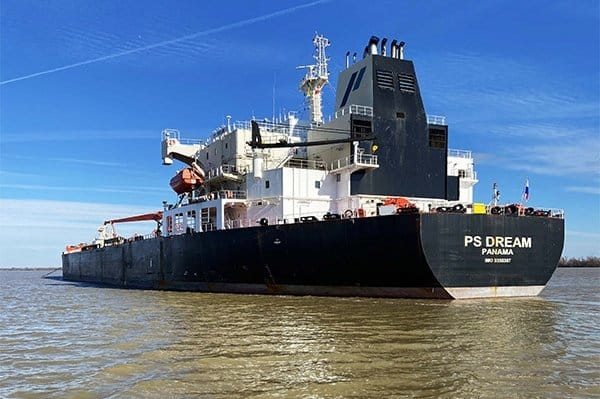U.S. Fines Turkish Shipping Company $2M for Illegal Ocean Dumping: A Closer Look at the Incident and Its Environmental Impact

In a significant move against marine pollution, the United States has fined a Turkish shipping company and its United Arab Emirates-based subsidiary a total of $2 million for illegally dumping oil-contaminated waste into the ocean.
The case highlights not only the legal repercussions but also the environmental impact of such reckless actions.
The Incident: Illegal Discharge of Oil Waste
The charges stem from an investigation into a January 2023 incident involving the tanker "P/S Dream," operated by Turkish company Prive Shipping Denizcilik Ticaret and its Dubai-based subsidiary Prive Overseas Marine LLC.
While en route to New Orleans, the ship's captain, Abdurrahman Korkmaz, allegedly ordered the crew to discharge oil-contaminated waste from a residual tank on deck directly into the Atlantic Ocean.
Over a span of three days, the crew rigged a portable pump to release the polluted waste into the ocean, a clear violation of the international treaty, MARPOL Annex I, which regulates oil pollution from ships.
Legal Proceedings and Sentencing
The U.S. Department of Justice (DOJ) led the investigation, which resulted in legal action against both the shipping companies and the ship’s captain. On September 27, 2024, the New Orleans court imposed a $2 million fine and sentenced both companies to four years of probation.
As part of this probation, the companies must comply with a stringent environmental compliance plan and adhere to safety and inspection requirements for the duration of the probation period.
Captain Korkmaz, a Turkish national, was sentenced to eight months in prison earlier in September for obstruction of justice and violating the Act to Prevent Pollution from Ships (APPS). He was found guilty of not only ordering the illegal discharge but also attempting to obstruct the subsequent U.S. Coast Guard investigation.
Evidence and the Role of the Crew
Key to the investigation were multiple crew members who came forward to report the illegal activities. Their testimonies, alongside critical evidence, played a vital role in the prosecution. Among the evidence presented was a recording of a ship officer discussing the oil discharge.
The falsified oil record book, submitted during a U.S. Coast Guard inspection, was intended to hide the dumping of the oil-contaminated waste.
The DOJ emphasised that such actions are not only violations of U.S. law but also of international maritime standards designed to protect the world’s oceans from oil pollution.
Environmental Impact and Restoration Efforts
Though the illegal dumping was a serious environmental offense, some positive outcomes have emerged from the case. From the $2 million penalty, $500,000 will be allocated for “organizational community service payments.” These funds will support various maritime preservation and environmental restoration projects along Louisiana’s fragile coastline, managed by the National Fish & Wildlife Foundation (NFWF).
The funding from this case will contribute to the preservation of this critical habitat and support ongoing efforts to restore the region’s ecosystems.
A Broader Implication for the Shipping Industry
This case serves as a stark reminder to shipping companies around the world about the importance of complying with environmental regulations. The penalties imposed on Prive Shipping Denizcilik Ticaret and its subsidiary reflect a growing intolerance for environmental negligence within the maritime industry.
The international maritime community, governed by treaties like MARPOL, faces increasing scrutiny to ensure that its operations do not harm the environment.
The hope is that such actions will lead to greater awareness and compliance, promoting cleaner, safer oceans for future generations.